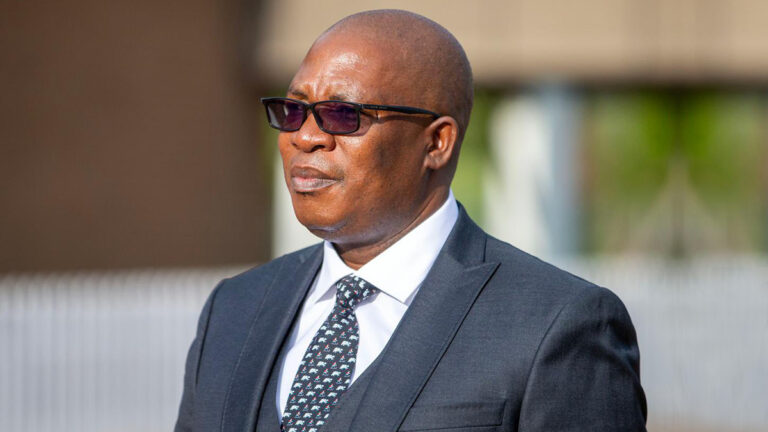Gauteng Premier Panyaza Lesufi.
Gauteng Premier Panyaza Lesufi said the new economy is about access to data and WiFi. He revealed that the provincial government is investing R2.7 billion in infrastructure development in Gauteng to provide connectivity.
Lesufi delivered his 2024 State of the State address at the Nasrec Expo Center yesterday, pointing out that reliable connectivity is one of the support mechanisms for companies investing in the state.
He said the investment is to ensure “reliable broadband and 5G for businesses to easily connect with customers across the state.”
“I would like to thank MTN and the institutions that partner with us. The good thing about this GBN is that [Gauteng Broadband Network] That means small businesses will no longer have a hard time getting connectivity in this state.
“Schools will no longer have to struggle to get connectivity, and public institutions will no longer have to struggle to get connectivity.”
The provincial government began implementing the GBN, considered Gauteng’s flagship ICT project, in 2014 as part of its city-region modernization plan.
The project is in line with the state’s e-government strategy, which aims to ensure government modernization and service delivery in the digital age. It also aims to improve coordination and integration between city-region governments and their departments.
The state government considers high-speed connectivity to be a key basic infrastructure requirement for the success of the state’s urban region modernization plan.
The first phase of the project began in 2014 and was completed in early 2018, connecting 1,181 sites.
But its implementation has been marred by wasteful spending, non-compliance, missed milestones and small businesses frustrated at being left out of lucrative projects.
There were also conflicts between the state Information Technology Department and the ministry over the management of the project.
Lesufi emphasized that WiFi infrastructure is a fundamental right that connects communities and promotes inclusivity.
As a result, he noted, the state government has prioritized providing “access to reliable internet and free Wi-Fi” within townships.
“Through private sector partnerships (Telkom, Herotel and Broadband Infraco), we report that more than 50 townships are now covered by broadband, allowing residents and businesses alike to access high-speed internet services at affordable rates. I’m happy to be able to do it.”
Lesufi revealed that more than 42 township areas were covered by broadband during this financial year.
“During this term, we made investments aimed at modernizing the infrastructure for the rollout of the Gauteng network. This network is maintained and ensured its resilience as the backbone of connectivity. Expanded wide area network capabilities to 1,249 sites, local area network coverage reached 719 sites, and 344 sites were equipped with voice capabilities.
“Starting in 2024, we will roll out connectivity to all townships. All public institutions, schools, health facilities and state offices will have reliable WiFi.”


